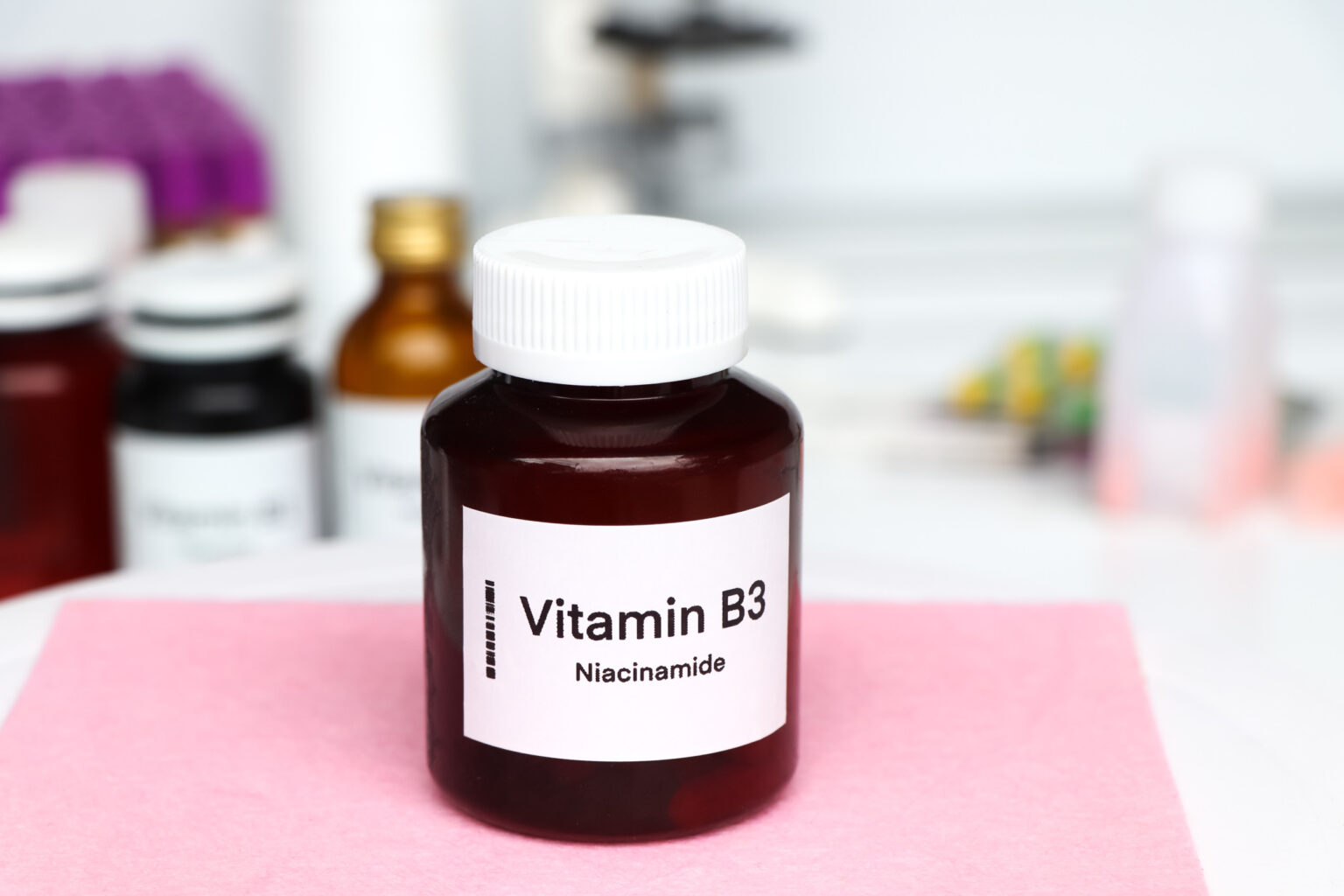Taking nicotinamide—a vitamin B3 derivative sold as an over-the-counter supplement—may help prevent skin cancer.
This is the claim of scientists from Vanderbilt University Medical Center who found nicotinamide, also known as niacinamide, reduced the risk of skin cancer by 14 percent compared to those who didn’t take it.
For those who had already had one skin cancer, it reduced the risk by as much as 54 percent.
The team looked at health data for 33,822 U.S. veterans, 12,287 of whom had taken 500mg of nicotinamide twice daily for longer than 30 days, while the remaining 21,479 patients had not.
The benefits declined among those patients who had skin cancer more than once before taking nicotinamide.
In the U.S., around 20 percent of people develop skin cancer in their lifetime. With this in mind, the authors suggest nicotinamide could be useful in reducing this risk.
“This study builds on several trials since 2015 that have shown nicotinamide to be effective at reducing skin cancer risk. In practice, often we did not do a good job at starting this early and many dermatologists, myself included, have felt that that 23 percent seemed a bit optimistic [the reduction of skin cancer found in a previous study],” study author Dr. Lee Wheless told Newsweek.
“Our study had more than 60 times the number of patients [than] in the original 2015 study and was able to break it down by how many skin cancers a patient had had prior to starting nicotinamide, as well as control for a number of other risk factors.”
Lee explained this study looked at the oral form of nicotinamide, which is entirely different to another form of vitamin B3, niacin.
“In our study, we saw effects in those with as little as 30 days of exposure, though patients with longer exposures tended to have started after a greater number of skin cancers, so there are still unanswered questions as to the proper duration of treatment,” he said.
Lee said the mechanism for nicotinamide to reduce skin cancer risk is thought to be related to its ability to improve DNA repair and slow new sun damage from accumulating.
“We hypothesize then that when patients have had only one or two skin cancers, this might be a proxy for lower overall sun damage, so slowing the rate of new DNA damage could slow the rate of new skin cancers,” he explained.
“Conversely, once a patient has developed multiple skin cancers and something that we call ‘field cancerization’ where there is widespread damage and confluent areas of precancerous cells, it doesn’t take much more damage to develop a new skin cancer, and so the benefits of nicotinamide are not as great.”
While the typical recommended sun protection practices like avoiding midday sun, applying sunscreen and wearing sun-protective clothing are still important, the researchers see nicotinamide as “another tool” available for preventing skin cancer.
“Nicotinamide, a simple vitamin B3 derivative, is showing real promise as a practical tool for skin cancer prevention,” Yousuf Mohammed, senior research fellow/research leader at the Frazer Institute at the University of Queensland, said in a statement.
He added, “The greatest impact was seen in squamous cell carcinoma, where risk dropped by more than 20 percent. Even more striking, patients who began nicotinamide after their very first skin cancer had risk reductions of nearly 50 percent. These findings highlight that timing matters; starting earlier may be the key to stronger protection.
“For clinicians, the appeal of nicotinamide lies in its accessibility, safety, and tolerability. Unlike systemic retinoids or invasive field therapies, nicotinamide is inexpensive, over-the-counter and free from significant side effects.”
Mohammed said that while this study did not show broad benefit in solid organ transplant recipients, it still suggests potential advantages for selected patients in this vulnerable group when started early.
“Overall, these results reinforce what many dermatologists have long suspected, nicotinamide is an underutilized, low-risk intervention that can make a difference in reducing skin cancer burden, especially for patients with an early history of disease,” he explained.
In terms of next steps, Lee said they need to first look at this prospectively and then do more research to identify the super-producers earlier to guide intervention.
While nicotinamide is available over-the-counter, you should always tell your doctor and pharmacist that you are taking Nicotinamide before starting any new medication of this kind.
Do you have a tip on a health story that Newsweek should be covering? Do you have a question about skin cancer? Let us know via health@newsweek.com.
Reference
Breglio, K. F., Knox, K. M., Hwang, J., Weiss, R., Maas, K., Zhang, S., Yao, L., Madden, C., Xu, Y., Hartman, R. I., & Wheless, L. (2025). Nicotinamide for Skin Cancer Chemoprevention. JAMA Dermatology. https://doi.org/10.1001/jamadermatol.2025.3238
Read the full article here

